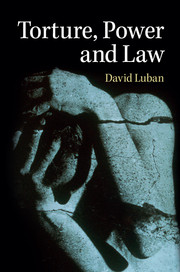Book contents
- Frontmatter
- Dedication
- Contents
- Preface
- Acknowledgments
- I Downgrading rights and expanding power during post-9/11 panic
- 1 The war on terrorism and the end of human rights
- 2 Eight fallacies about liberty and security
- II The ticking bomb as moral fantasy and moral fraud
- III The evils of torture
- IV Complicity in torture
- Main index
- Index of legal authorities
- References
1 - The war on terrorism and the end of human rights
Published online by Cambridge University Press: 05 September 2014
- Frontmatter
- Dedication
- Contents
- Preface
- Acknowledgments
- I Downgrading rights and expanding power during post-9/11 panic
- 1 The war on terrorism and the end of human rights
- 2 Eight fallacies about liberty and security
- II The ticking bomb as moral fantasy and moral fraud
- III The evils of torture
- IV Complicity in torture
- Main index
- Index of legal authorities
- References
Summary
Preface
This chapter was written in spring and summer 2002, responding to momentous developments in the previous six months, both “on the ground” and in the US government’s legal strategy. When I wrote it, the ashes of the World Trade Center had not yet settled. Speaking personally, I can report daily fear of another attack as I drove to work on Capitol Hill in Washington; it felt as though I had a target painted on the roof of my car. I was not the only one; public fear was palpable and pervasive. So were the grief and the anger. I shared, and share, that grief and anger.
Five people in my own tiny neighborhood in suburban Maryland died in the September 11 attack. It seemed clear that ideological suicide bombers cannot be deterred by the threat of criminal punishment, and that fact lent force to the government’s aggressive, military-focused strategy. Facing the nightmare scenario in which terrorists acquire weapons of mass destruction, no possible step seemed too drastic.
- Type
- Chapter
- Information
- Torture, Power, and Law , pp. 3 - 18Publisher: Cambridge University PressPrint publication year: 2014
References
- 4
- Cited by



